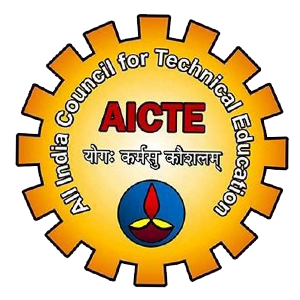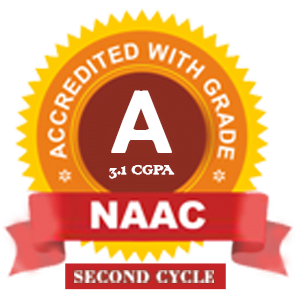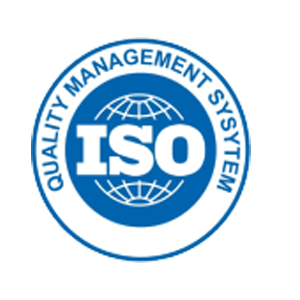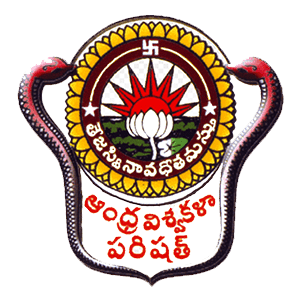ABOUT DEPARTMENT:
Department of Electronics and communication Engineering (ECE) at Sanketika Vidya Parishad Engineering College (SVPEC) was established in the year 2003 for imparting state-of-the-art knowledge in Electronics and Communication Engineering and allied areas. Students who are eligible are placed in different companies each year. The department has set up laboratories with excellent infrastructure in the areas of Electronics, Communication, VLSI, and Embedded Systems. Faculties are actively involved in R&D activities and are working on research projects.
Courses Offered
Under Graduate Courses
- Electronics and Communication Engineering with an intake 120
Post Graduate Courses
- Communication Systems (CS) with an intake 24
- VLSI Design & Embedded Systems (VLSI&ES) with an intake 18
- VLSI with an intake 60
o.
Hearty Welcome to the Department of Electronics and Communication Engineering, at Sanketika Vidya Parishad Engineering College, Visakhapatnam. It is my pleasure to head the Department of ECE .The department has a team of well qualified and experienced faculty to motivate young intuitive minds.
Electronics and Communication Engineering is an evergreen, exciting area that provides solutions for problems of various walks of life in areas like engineering, technology, and medicine etc.,. It offers excellent and dynamic career opportunities.
TheDepartment of Electronics and Communication Engineering was established in the year 2003. ECE Department offers both under graduate and post graduate courses.Initially the under graduate intake was 60 and is increased to 120.The post graduate courses offered by ECE Department are Communication Systemswith 24 seats, VLSI with60 seats and VLSI & ES with 18 seats. The department has excellent lab facilities which are being upgraded from time to time and provide ample opportunities for students to learn and innovate.
Our department maintains dynamic research groups with other departments, headed by faculty with students as members for carrying out collaborative and interdisciplinary research. The department regularly organizes various professional and faculty development activities to groom its students and faculty with updated knowledge. Student development programs and personality development programs are regularly organized to upgrade and equip the students with recent trends and technologies.
Department constantly works for overall growth of students and strives to inhibit the qualities required for the society with quality education. Inculcating technical knowledge with ethical values and finding out the solutions for engineering problems is the prime motive of our ECE department.
VISION
Create high-quality engineering professionals through research, innovation and teamwork for a lasting technology development in the area of Electronics and Communication Engineering.
MISSION
1.To produce graduates with the best technical standards with ideal conduct and character.
- To offer a well-balanced programme of instruction, lab practices, research & development activities, product incubation.
- Develop accomplished technical personnel with a strong background on fundamental and advanced concepts, have excellent professional conduct.
- Enhance overall personality development which includes innovative and group work exercises, entrepreneur skills, communication skills and employability.
- Ensuring effective teaching–learning process to provide in-depth knowledge of principles and its applications pertaining to Electronics & Communication Engineering and interdisciplinary areas.
6. Providing industry and department interactions through consultancy and sponsored research.
PROGRAMME EDUCATIONAL OBJECTIVES (PEOs)
- PEO1 To provide an in-depth knowledge in the fundamental and advanced areas of electronics and communication engineering and there by excel in professional career and/or higher education.
- PEO2 To train students in the software/hardware design of electronics and communication systems and can promote the development of research activity as well as innovation and entrepreneurship that caters to the need of Industry and Society.
- PEO3 To develop technical skill set for solving real life problems.
- PEO4 To develop qualities like creativity, leadership, team work, and professional ethics for contributing towards the growth and development of society.
- PEO5 To inculcate in students professional and ethical attitude, and an ability to relate engineering issues to broader social context.
PROGRAMME OUTCOMES (POs)
- PO1 Engineering knowledge- Apply knowledge of mathematics, science, and engineering fundamentals to solve real-time problems in electronics and communication.
- PO2 Problem analysis- Provide solutions to ECE problems by identifying and formulating issues, reviewing literature, analyzing data, designing and conducting experiments, and interpreting and reporting the results.
- PO3 Design/development of solutions- Design and develop feasible and optimal solutions for complex engineering problems, considering public health, safety, and cultural, societal, and environmental factors.
- PO4 Conduct investigations of complex problems- Apply research-based methods such as experimental design, data analysis, and synthesis to draw valid conclusions.
- PO5 Modern tool usage- Select and apply appropriate techniques, resources, and modern engineering and IT tools, including prediction and modeling, to complex engineering tasks while understanding their limitations.
- PO6 The engineer and society- Apply contextual knowledge to assess and understand industrial, societal, and safety issues in engineering practice.
- PO 7 Environment and sustainability- Understand the impact of the professional engineering solutions in societal and environmental contexts, and demonstrate the knowledge of, and need for sustainable development.
- PO 8 Ethics Apply ethical principles and commit to professional ethics and responsibilities and norms of the engineering practice.
- PO 9 Individual and team work- Function effectively as an individual, and as a member or leader in diverse teams, and in multidisciplinary settings.
- PO 10 Communication- Communicate effectively on complex engineering activities with both the engineering community and the public, including writing reports, making presentations, and giving and receiving clear instructions.
- PO 11 Project management and finance- Demonstrate and apply engineering and management principles to manage projects and work effectively as a team member and leader in multidisciplinary environments.
- PO 12 Life-long learning recognizes the need for, and has the preparation and ability to engage in independent and life-long learning in the broadest context of technological change.
PROGRAMME SPECIFIC OUTCOMES (PSOs)
- PSO 1- Graduates will apply fundamental Electronics and Communication Engineering knowledge to identify, investigate, and solve real-life problems in the field.
- PSO 2- Graduates will be able to design and develop systems in the emerging electronics and communication allied disciplines to meet out the industry challenges.
- PSO 3- Graduates will demonstrate leadership and strive to improve organizations, the environment, and society with professional and ethical responsibilities.
Milestone | Year | Intake |
UG-ECE | 2003 | 120 |
PG-CS | 2013 | 24 |
PG-VLSI | 2013 | 60 |
PG-VLSI&ES | 2023 | 18 |
ABOUT DEPARTMENT:
Department of Electronics and communication Engineering (ECE) at Sanketika Vidya Parishad Engineering College (SVPEC) was established in the year 2003 for imparting state-of-the-art knowledge in Electronics and Communication Engineering and allied areas. Students who are eligible are placed in different companies each year. The department has set up laboratories with excellent infrastructure in the areas of Electronics, Communication, VLSI, and Embedded Systems. Faculties are actively involved in R&D activities and are working on research projects.
Courses Offered
Under Graduate Courses
- Electronics and Communication Engineering with an intake 120
Post Graduate Courses
- Communication Systems (CS) with an intake 24
- VLSI Design & Embedded Systems (VLSI&ES) with an intake 18
- VLSI with an intake 60
o.
Hearty Welcome to the Department of Electronics and Communication Engineering, at Sanketika Vidya Parishad Engineering College, Visakhapatnam. It is my pleasure to head the Department of ECE .The department has a team of well qualified and experienced faculty to motivate young intuitive minds.
Electronics and Communication Engineering is an evergreen, exciting area that provides solutions for problems of various walks of life in areas like engineering, technology, and medicine etc.,. It offers excellent and dynamic career opportunities.
TheDepartment of Electronics and Communication Engineering was established in the year 2003. ECE Department offers both under graduate and post graduate courses.Initially the under graduate intake was 60 and is increased to 120.The post graduate courses offered by ECE Department are Communication Systemswith 24 seats, VLSI with60 seats and VLSI & ES with 18 seats. The department has excellent lab facilities which are being upgraded from time to time and provide ample opportunities for students to learn and innovate.
Our department maintains dynamic research groups with other departments, headed by faculty with students as members for carrying out collaborative and interdisciplinary research. The department regularly organizes various professional and faculty development activities to groom its students and faculty with updated knowledge. Student development programs and personality development programs are regularly organized to upgrade and equip the students with recent trends and technologies.
Department constantly works for overall growth of students and strives to inhibit the qualities required for the society with quality education. Inculcating technical knowledge with ethical values and finding out the solutions for engineering problems is the prime motive of our ECE department.
VISION
Create high-quality engineering professionals through research, innovation and teamwork for a lasting technology development in the area of Electronics and Communication Engineering.
MISSION
1.To produce graduates with the best technical standards with ideal conduct and character.
- To offer a well-balanced programme of instruction, lab practices, research & development activities, product incubation.
- Develop accomplished technical personnel with a strong background on fundamental and advanced concepts, have excellent professional conduct.
- Enhance overall personality development which includes innovative and group work exercises, entrepreneur skills, communication skills and employability.
- Ensuring effective teaching–learning process to provide in-depth knowledge of principles and its applications pertaining to Electronics & Communication Engineering and interdisciplinary areas.
6. Providing industry and department interactions through consultancy and sponsored research.
PROGRAMME EDUCATIONAL OBJECTIVES (PEOs)
- PEO1 To provide an in-depth knowledge in the fundamental and advanced areas of electronics and communication engineering and there by excel in professional career and/or higher education.
- PEO2 To train students in the software/hardware design of electronics and communication systems and can promote the development of research activity as well as innovation and entrepreneurship that caters to the need of Industry and Society.
- PEO3 To develop technical skill set for solving real life problems.
- PEO4 To develop qualities like creativity, leadership, team work, and professional ethics for contributing towards the growth and development of society.
- PEO5 To inculcate in students professional and ethical attitude, and an ability to relate engineering issues to broader social context.
PROGRAMME OUTCOMES (POs)
- PO1 Engineering knowledge- Apply knowledge of mathematics, science, and engineering fundamentals to solve real-time problems in electronics and communication.
- PO2 Problem analysis- Provide solutions to ECE problems by identifying and formulating issues, reviewing literature, analyzing data, designing and conducting experiments, and interpreting and reporting the results.
- PO3 Design/development of solutions- Design and develop feasible and optimal solutions for complex engineering problems, considering public health, safety, and cultural, societal, and environmental factors.
- PO4 Conduct investigations of complex problems- Apply research-based methods such as experimental design, data analysis, and synthesis to draw valid conclusions.
- PO5 Modern tool usage- Select and apply appropriate techniques, resources, and modern engineering and IT tools, including prediction and modeling, to complex engineering tasks while understanding their limitations.
- PO6 The engineer and society- Apply contextual knowledge to assess and understand industrial, societal, and safety issues in engineering practice.
- PO 7 Environment and sustainability- Understand the impact of the professional engineering solutions in societal and environmental contexts, and demonstrate the knowledge of, and need for sustainable development.
- PO 8 Ethics Apply ethical principles and commit to professional ethics and responsibilities and norms of the engineering practice.
- PO 9 Individual and team work- Function effectively as an individual, and as a member or leader in diverse teams, and in multidisciplinary settings.
- PO 10 Communication- Communicate effectively on complex engineering activities with both the engineering community and the public, including writing reports, making presentations, and giving and receiving clear instructions.
- PO 11 Project management and finance- Demonstrate and apply engineering and management principles to manage projects and work effectively as a team member and leader in multidisciplinary environments.
- PO 12 Life-long learning recognizes the need for, and has the preparation and ability to engage in independent and life-long learning in the broadest context of technological change.
PROGRAMME SPECIFIC OUTCOMES (PSOs)
- PSO 1- Graduates will apply fundamental Electronics and Communication Engineering knowledge to identify, investigate, and solve real-life problems in the field.
- PSO 2- Graduates will be able to design and develop systems in the emerging electronics and communication allied disciplines to meet out the industry challenges.
- PSO 3- Graduates will demonstrate leadership and strive to improve organizations, the environment, and society with professional and ethical responsibilities.
Milestone | Year | Intake |
UG-ECE | 2003 | 120 |
PG-CS | 2013 | 24 |
PG-VLSI | 2013 | 60 |
PG-VLSI&ES | 2023 | 18 |
| List of Teaching Faculty- Department of Eletrconics & Communication Engineering | ||||||||
| S.No | Photo | Name | Designation | Qualification | Experience | Date of Joining | Nature of Association | Profile |
| 1 |  |
Dr. T.RAMA KRISHNA | Professor &Principal | Ph.D | 23 years | 19-02-2024 | Regular | Vidwan |
| 2 |  |
Dr R Suneetha | Associate Professor & HoD | PhD | 15 years | 10-02-2024 | Regular | Vidwan |
| 3 |  |
Dr.CH Venkat Rao | Professor | BE M.Tech Phd | 28 yrs | 01-07-2024 | Regular | Vidwan |
| 4 |  |
Mr.M.Sanjivi Naidu | Assistant Professor | M.Tech | 12 yrs | 10-02-2021 | Regular | Vidwan |
| 5 |  |
Ms.B.Sarada | Assistant Professor | BE, ME | 14yrs | 11-06-2010 | Regular | Vidwan |
| 6 |  |
Mr.P S N Bhaskar | Assistant Professor | M.Tech | 10 yrs | 16-11-2013 | Regular | Vidwan |
| 7 |  |
Mrs.A.Bhanu Priya | Assistant Professor | M.Tech | 3.5yrs | 12-02-2021 | Regular | Vidwan |
| 8 | 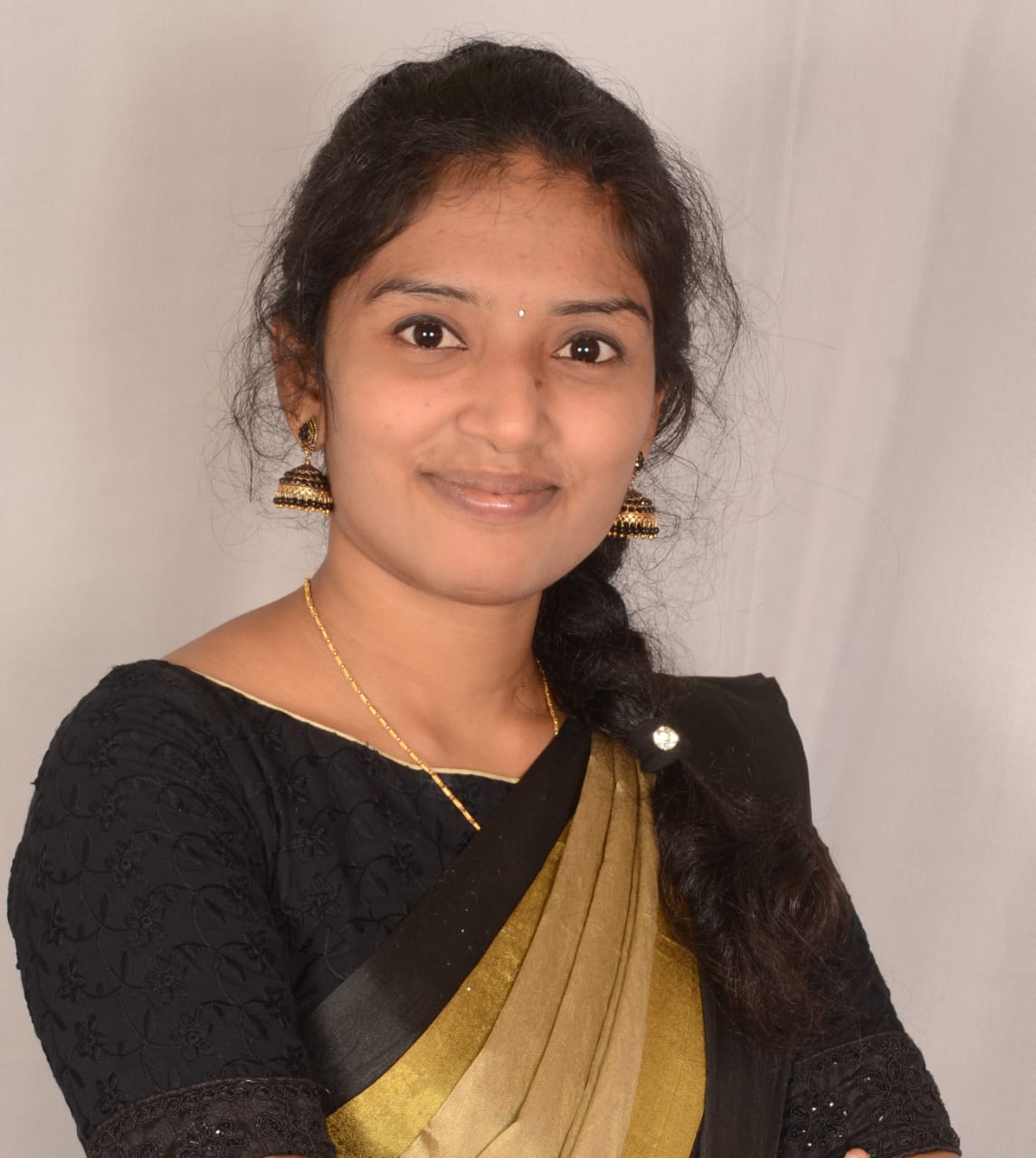 |
Mrs.A.Swapna | Assistant Professor | M.Tech | 02 yrs | 30-07-2022 | Regular | Vidwan |
| 09 |  |
Mrs.N.Ananda kumari | Assistant Professor | M.Tech | 02 yrs | 26-09-2022 | Regular | Vidwan |
| 10 |  |
Mrs.C R K Gayatri | Assistant Professor | M.Tech | 01 yrs | 04-01-2023 | Regular | Vidwan |
| 11 |  |
Ms.K.Kavya | Assistant Professor | M.Tech | 02 yrs | 21-09-2022 | Regular | Vidwan |
| 12 |  |
Ms.R Geethika | Assistant Professor | M.Tech | 01 yrs | 15-11-2023 | Regular | Vidwan |
| 13 |  |
Mrs.V.Surya kala | Assistant Professor | M.Tech | 07 yrs | 24-06-2024 | Regular | Vidwan |
| 14 |  |
Mr.V B K P D NAIDU | Assistant Professor | M.Tech | 16 yrs | 04-09-2024 | Regular | Vidwan |
| 15 |  |
Mr Uriti Pradeep Kumar | Assistant Professor | M.Tech | 14 yrs | 12-09-2024 | Regular | Vidwan |
| 2018 | ECE |
| EFFTRONICS | 5 |
| Fastest Technocraft | 2 |
| Amazon | 0 |
| Excel Global Services | 0 |
| SRISHA ELECTRONICS | 3 |
| Triangle Tele Services | 0 |
| TOTAL OFFERS | 10 |
| IN CLASS | 20 |
| HIGHER EDUCATION | 7 |
| 2019 | ECE |
| efftronics | 4 |
| intellicrats | 0 |
| shivani pumps | 3 |
| 7 hills health | 0 |
| EICHER VOLVO | 0 |
| Ski Detail | 0 |
| Miracle Software | 4 |
| TOTAL OFFERS | 11 |
| IN CLASS | 17 |
| HIGHER EDUCATION | 5 |
| 2020 | ECE |
| mind tree | 0 |
| tessolve | 3 |
| MANGO HUNDAI | 0 |
| efftronics | 2 |
| avantel ltd | 0 |
| juspay | 0 |
| TOTAL OFFERS | 5 |
| IN CLASS | 8 |
| HIGHER EDUCATION | 3 |
| 2021 | ECE |
| AVENTEL | 3 |
| spr capital | 4 |
| Miracle | 0 |
| gangavaram port | 0 |
| multiplier | 2 |
| cool soft technologies | 0 |
| TOTALS OFFERS | 9 |
| IN CLASS | 12 |
| HIGHER EDUCATION | 3 |
| 2022 | ECE |
| digitaas | 0 |
| blue danio | 7 |
| Efftronics | 7 |
| pentagon space | 0 |
| miracle | 5 |
| sanghvi movers | 0 |
| sarvani rmc | 0 |
| WEBTECHNOLOGIES | 0 |
| TOTALS OFFERS | 19 |
| IN CLASS | 35 |
| HIGHER EDUCATION | 7 |
| 2023 | ECE |
| EVOLUTYZ | 5 |
| DURAN RMC | 0 |
| ORIANA | 0 |
| KASTECH | 3 |
| ARADHYA CLOUD | 0 |
| VARUN MOTORS | 0 |
| TOTALS OFFERS | 8 |
| IN CLASS | 16 |
| HIGHER EDUCATION | 7 |





